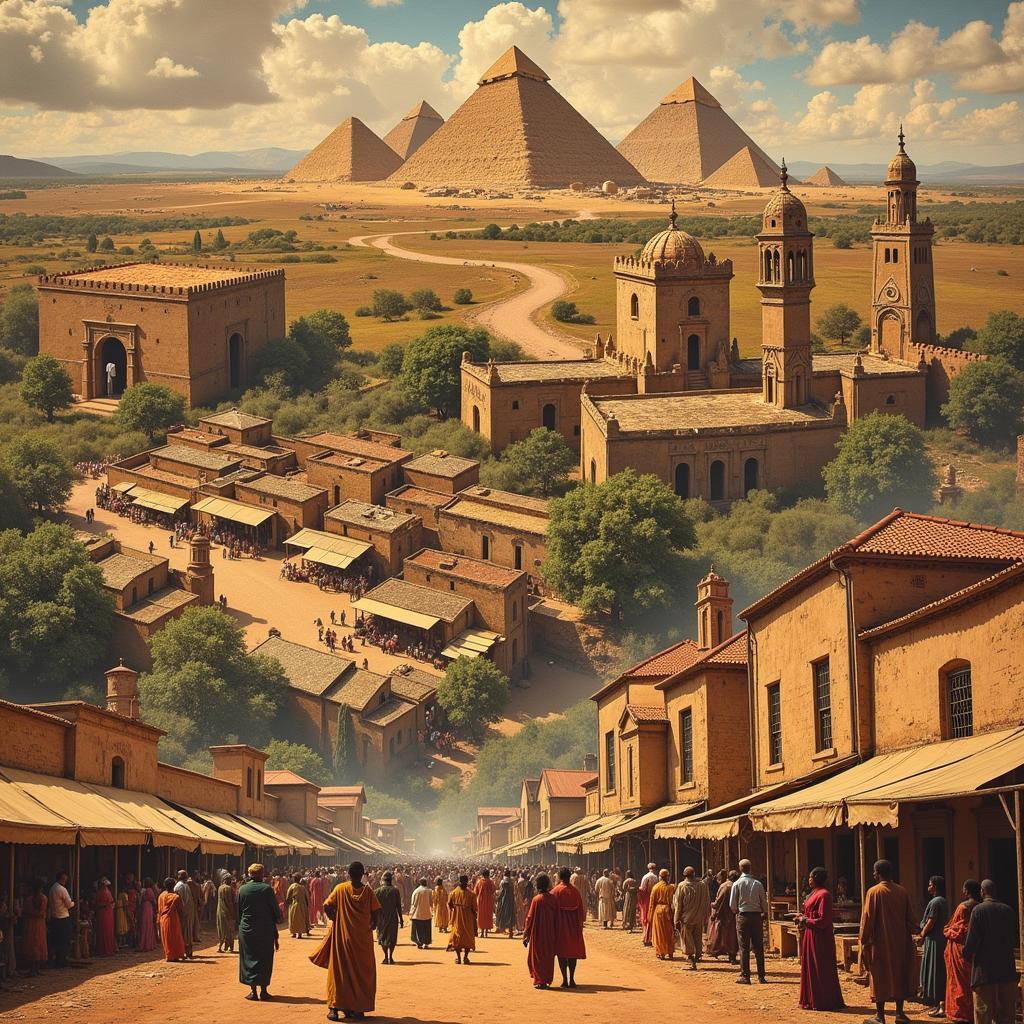20th Century African American History Syllabus: A Deep Dive
A comprehensive “20th Century African American History Syllabus” delves into the complex and transformative journey of African Americans from the dawn of the 20th century to its closing years. This period witnessed significant events like the Jim Crow era, the Civil Rights Movement, and the rise of Black Power, all of which shaped the social, political, and cultural landscape of the United States.
The Nadir and the Great Migration: Setting the Stage
The early 20th century marked a period known as the Nadir, a time of intense racial discrimination and violence. Jim Crow laws, enacted in Southern and some Northern states, legalized segregation and disenfranchisement of African Americans. Lynchings and race riots became horrifyingly commonplace, forcing many to flee the South in search of a better life. This mass exodus, known as the Great Migration, saw millions of African Americans relocate to northern cities, transforming the demographics and cultural fabric of the nation.
The Harlem Renaissance: A Flourishing of Black Culture
Amidst the hardship and struggle, the 1920s witnessed an unprecedented explosion of Black artistic and intellectual creativity known as the Harlem Renaissance. Centered in Harlem, New York, this movement saw a proliferation of literature, music, art, and dance that celebrated Black identity and challenged prevailing stereotypes. Figures like Langston Hughes, Zora Neale Hurston, Duke Ellington, and Louis Armstrong redefined Black culture and left an enduring legacy on American art.
The Civil Rights Movement: A Fight for Equality
The post-World War II era saw the rise of the Civil Rights Movement, a landmark struggle for social justice and equality. Fueled by the landmark Brown v. Board of Education Supreme Court decision in 1954, which declared school segregation unconstitutional, activists like Martin Luther King Jr., Rosa Parks, and Malcolm X led a decades-long fight against segregation, voter suppression, and systemic racism. Through non-violent protests, boycotts, and legal challenges, the Civil Rights Movement achieved significant victories, including the Civil Rights Act of 1964 and the Voting Rights Act of 1965.
Black Power and Beyond: Redefining Identity and Self-Determination
The late 1960s and 1970s saw the emergence of the Black Power movement, a more radical response to the limitations of integration and the persistence of racial inequality. Leaders like Stokely Carmichael and Huey Newton advocated for Black self-reliance, community control, and a more assertive stance against racism. This period also witnessed the rise of Black Panther Party, a revolutionary organization that challenged police brutality and advocated for social programs for Black communities. The Black Power movement, though often controversial, helped to foster a sense of Black pride and self-determination that continues to resonate today.
The Late 20th Century: Progress and Continuing Challenges
The late 20th century saw continued progress for African Americans, but also a continuation of systemic racism and inequality. The election of Barack Obama as the first Black president in 2008 was a watershed moment, but it also highlighted the persistence of racial divides. The rise of the Black Lives Matter movement in response to police brutality and the killings of unarmed Black men and women underscored the ongoing need for racial justice.
Conclusion: A Century of Triumph and Struggle
The 20th century was a pivotal era in African American history, marked by both immense progress and ongoing challenges. From the depths of Jim Crow to the heights of the Civil Rights Movement, from the cultural flowering of the Harlem Renaissance to the activism of Black Power, African Americans fought tirelessly for their freedom, equality, and dignity. A deep understanding of this history is essential for comprehending the complexities of race and racism in America today.
FAQ:
1. What are the most important events in 20th century African American history?
Key events include the Great Migration, the Harlem Renaissance, the Civil Rights Movement, the rise of Black Power, and the election of Barack Obama as the first Black president.
2. Who are some of the most influential figures in 20th century African American history?
Influential figures include Martin Luther King Jr., Malcolm X, Rosa Parks, W.E.B. Du Bois, Booker T. Washington, and many others.
3. What are some good resources for learning more about 20th century African American history?
Excellent resources include the National Museum of African American History and Culture, the Schomburg Center for Research in Black Culture, and the Library of Congress.
4. How did the Great Migration impact African American history?
The Great Migration transformed the demographics of the United States and led to the development of vibrant Black communities in Northern cities, which in turn fueled the Civil Rights Movement.
5. What are some of the ongoing challenges faced by African Americans today?
Continuing challenges include racial profiling, mass incarceration, economic inequality, and disparities in healthcare and education.
6. How can I learn more about the history of 20th century African American history in my local area?
Local historical societies, museums, and libraries often have resources and exhibits dedicated to local African American history.
7. What are some ways to celebrate and honor the legacy of 20th century African American history?
Support Black-owned businesses, attend cultural events, engage in activism, and educate yourself and others about this rich and complex history.
Need More Information?
For further assistance and inquiries regarding 20th century African American history or other aspects of African culture and life, please contact us:
Phone: +255768904061
Email: kaka.mag@gmail.com
Address: Mbarali DC Mawindi, Kangaga, Tanzania
Our dedicated team is available 24/7 to provide support and answer your questions.


